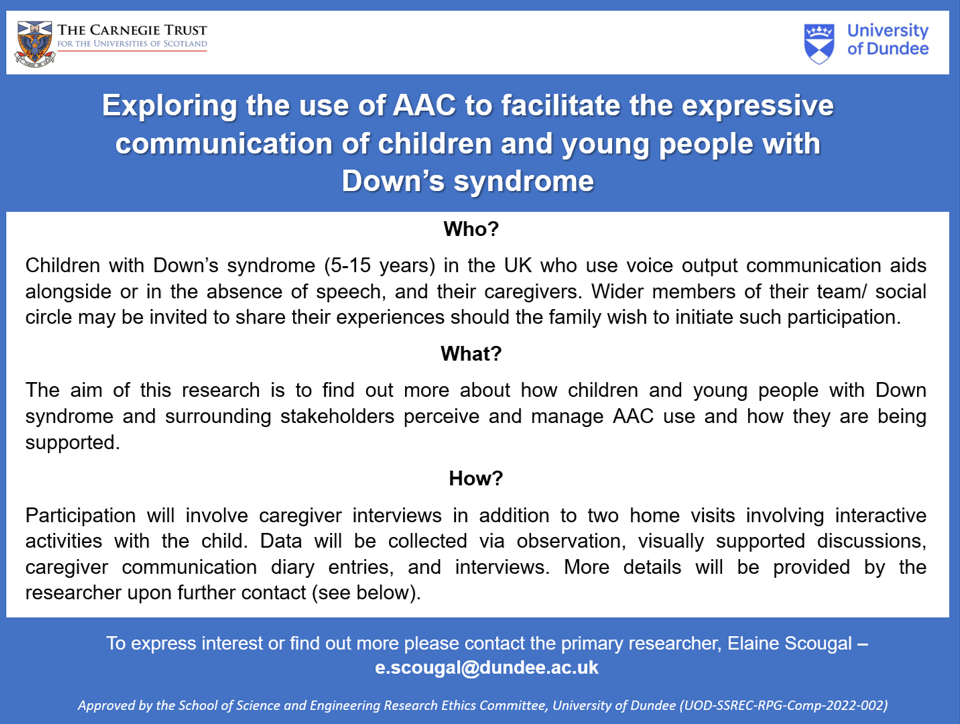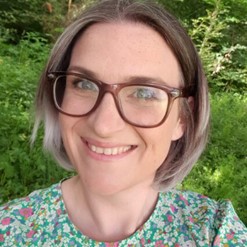Exploring the use of Augmentative and Alternative Communication to facilitate the expressive communication of children and young people with Down’s syndrome

Augmentative and Alternative Communication (AAC) refers to ways of communicating in the absence of, or in addition to, speech. This includes the use of signing, symbols, and devices.
Elaine Scougal is exploring the experiences and views of children and young people with Down’s syndrome and stakeholders relating to AAC.
Currently, Elaine is seeking participation from children and young people with Down syndrome (aged 5 to 15, with or without a dual diagnosis of autism) who use voice output communication aids to support their communication. Participation will involve two home visits involving interactive activities with the child. Interviews will also be conducted with caregivers to gain insight into their own perspectives. Other members of the team around the child may also be invited to participate in the study should the family wish to initiate that involvement, such as school staff, siblings/ other family members, and/or therapists.
The data will provide insights into the use of AAC by children with Down’s syndrome and the support received to use it, in addition to identifying whether the communication needs of this group are currently being met.
To express interest in participating, or to find out more, please contact Elaine using the details below.
About the researcher
 |
Elaine Scougal
Elaine Scougal is a PhD student at the University of Dundee. She has a Master’s degree in Augmentative and Alternative Communication and is a mother to twins who have Down’s syndrome. This has motivated her research exploring the communication methods and experiences of children and young people with Down’s syndrome. Email: e.scougal@dundee.ac.uk Website: carnegie-trust.org/alumni/elaine-scougal-2/ Twitter: @EMScougal |
